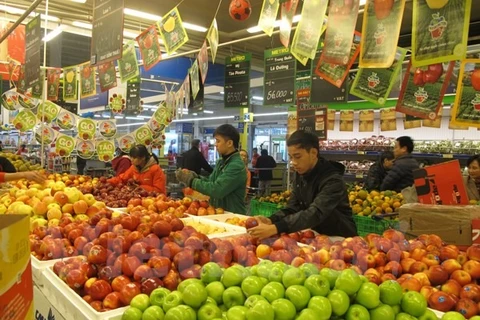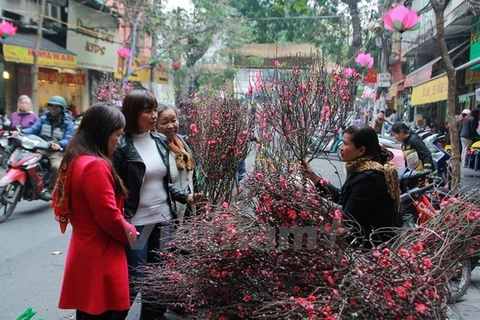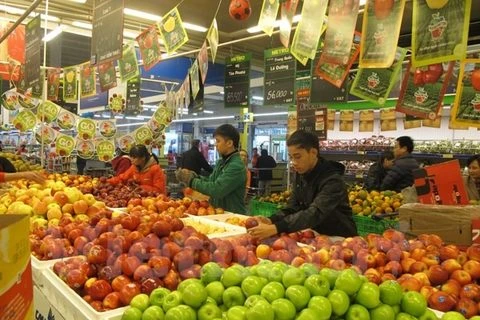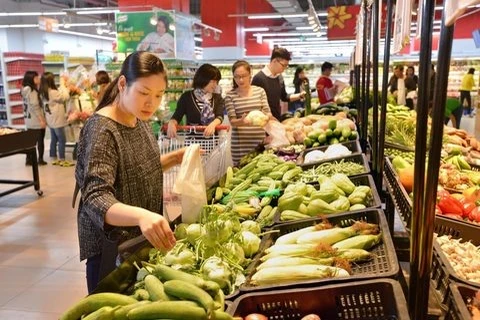Hanoi (VNA) - Hanoians are raising more concerns about food safety and hygiene in the run-up to Tet, the Lunar New Year celebrations, as some recent visible violations related to animal slaughter in the city are especially troubling.
On November 25, Hanoi police and the Animal Health Department found nearly 200 pigs with foot-and-mouth disease in Dong Son Commune of Hanoi’s Chuong My District.
The pigs were on two trucks which departed from northern Hai Duong province, heading to the border province of Cao Bang for export to China. They returned to Hanoi after Chinese traders refused to buy them, truck drivers told police.
They said that they were hired to transport the pigs without knowing the animals were ill.
Commuters travelling along Trung Van Street in Hanoi’s Nam Tu Liem District have also raised concerns over the sale of animals including buffalo, yellow cow, wild pig, crocodile and ostrich on the pavement.
The animals are slaughtered on the pavement, next to a poster saying “Wild pig available on Monday” or “Ostrich available on Tuesday”.
The pavement slaughtering ignores regulations on hygiene, animal quarantine and food safety.
Tran Duc Chung, head of Ba La Animal Quarantine Station in Ha Dong District, said quarantine officers face difficulties in punishing drivers who transport animals of unknown origin.
They usually claimed that they were hired to transport the animals and did not own them, Chung said.
Another difficulty was that animal quarantine stations usually did not have space to store seized animals that require further testing, he added.
Vice head of Hanoi’s Animal Health Department Nguyen Ngoc Son said that the sale of animals at illegal street-side markets or temporary markets in residential areas was popular as the number and size of markets in Hanoi failed to meet demand.
Son said that sellers, mostly from suburban districts or neighbouring provinces carried meat by motorbikes to illegal street-side markets. Poultry sellers usually slaughtered the ducks or chickens at their stalls, which violated slaughtering, food safety and environment regulations.
“Loose management over animal quarantine is seen at grass root levels,” he said.
In 2015, the city’s Health Animal Department and its branches destroyed thousands of animals and animal products of unknown origin including 20 pigs, 2.3 tonnes of poultry meat, over 2,500 poultry, 685 kilos of buffalo and two tonnes of meat. But the crackdown was a drop in the ocean, Son admitted.
Quarantine officers in communes complained that their salary was too low whereas their working hours were too long as animal slaughtering usually occurred from midnight to early morning.
Head of Thuong Tin District Animal Quarantine Station, Duong Xuan Tinh said that they did not have enough staff to inspect all local slaughtering houses at once.
“Quarantine officers’ job is hard as many parties including animal raisers and wholesalers join slaughtering activities, which can be done anywhere, not just slaughtering houses as regulated,” Tinh said. — VNA
VNA
























